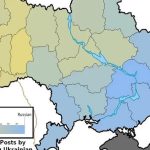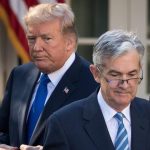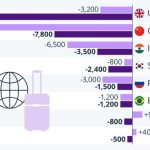Authored by Emily Kopp via The Brownstone Institute,
The Wuhan Institute of Virology’s chief American collaborator leveraged connections in Anthony Fauci’s inner circle to survive federal scrutiny and keep millions in public funding flowing without turning over key data, new records show.
Hundreds of documents — emails obtained under Freedom of Information Act lawsuits or Congressional subpoena, as well as Congressional interview transcripts — show Fauci’s institute protected EcoHealth Alliance, which collaborated on novel coronavirus discovery and engineering projects with the Wuhan lab.
At a congressional hearing this summer, Fauci cast EcoHealth and its president Peter Daszak — who are currently under proposed debarment by the federal government — as minor and rogue grantees.
But EcoHealth was among the first grantees that Fauci’s National Institute of Allergy and Infectious Diseases contacted as news of a novel coronavirus first swirled, and Daszak requested supplemental funds to respond to the crisis. In early February 2020, when NIAID began conducting weekly calls with a few experts about the novel coronavirus, Daszak was among the invitees. And at the height of pandemic confusion and controversy in the summer of 2020, EcoHealth maintained the goodwill of NIAID, which awarded EcoHealth two new grants totaling $19.8 million, weakening the leverage of other officials to obtain information from one of the US government’s only sources of insight into the Wuhan Institute of Virology.
Fauci “asked how Peter is doing, as he often does, and he seemed to commiserate with him to a degree,” Fauci’s senior scientific advisor David Morens wrote in apparent reference to Daszak on Nov. 18, 2021.
At the time, officials at the National Institutes of Health’s central headquarters or “Building One” — at the demand of the Trump White House — had suspended EcoHealth’s existing NIAID grant and sought lab notebooks and unpublished genomic data as a condition of getting its funding back. This information could have shed light on the coronavirus research in Wuhan before the pandemic.
But aided by allies within NIAID, millions continued to flow to EcoHealth, and Daszak would not ask his longtime collaborators in Wuhan for information sought by the US government until 20 months later, in January 2022 — two years after the pandemic began.
Some of the NIAID officials who helped Daszak were key to approving his coronavirus research in Wuhan in the first place, including gain-of-function research, research that can enhance the pathogenicity or transmissibility of a pathogen. Some of these NIAID officials had spent years championing gain-of-function research as worth the risks, Congressional transcripts also show. Namely, Morens and another NIAID employee named “Jeff T.” were the liaisons between the scientific community and Fauci during the years-long debates about gain-of-function research leading up to the pandemic, one email shows. After the pandemic arose, Morens and another NIAID scientist named Jeffery Taubenberger wrote an editorial defending EcoHealth and referred to people concerned about gain-of-function research as “luddites” and “the complaining crowd.”
Thousands of pages of grant proposals and other documents obtained by U.S. Right to Know show that EcoHealth planned to use the new NIAID funding to continue research similar to the work that had brought the group under scrutiny, using the very same viral samples.
Most of the NIAID employees who helped Daszak maintain funding amid the pandemic still retain positions of influence at NIAID.
PUThe revelations come as the US Senate considers legislation championed by Sen. Rand Paul (R-KY) that would move regulation of the riskiest gain-of-function research out of the funding agency — which is typically NIAID — and empower an independent panel of scientists to determine when engineering new pathogens is worth the risk.
More than four years after the pandemic began, the Department of Health and Human Services initiated debarment proceedings against EcoHealth and Daszak, citing problems uncovered by government officials outside of Fauci’s institute and the Select Subcommittee on the Coronavirus Pandemic. Funding to the group and its president has been suspended.
Daszak said he would contest the prospective debarment. He has continued to lean on influential allies.
None of the NIAID employees named in this story replied to questions.
‘A Friend in These Efforts…But Not Too out Front’
Daszak was among the first scientists contacted by people within NIAID when news first broke of a novel coronavirus in Wuhan.
Daszak spoke to his program officer Erik Stemmy, who broadly oversaw NIAID’s coronavirus research portfolio, on January 6, 2020.
“Definitely focusing attention on this, Erik,” Daszak wrote. “I spent New Year’s Eve talking with our China contacts and with ProMed staff in between glasses. I’ve got more information but it’s all off the record. Could I give you a call to fill you in?”
Yet he had stopped receiving updates on the emerging pathogen from his colleagues at the Wuhan Institute of Virology 12 days prior. He had last heard from Zhengli Shi of the Wuhan lab on December 25, 2019, six days before the world became aware of a new pathogen in Wuhan on December 31, 2019.
By the spring, speculation that the lab had been the pandemic’s source reached a fever pitch.
On April 17, 2020, Trump called for EcoHealth’s grant to be ended “very quickly.”
Mark Meadows, Trump’s chief of staff, got in contact with the Department of Health and Human Services, according to a Congressional report.
NIH Director of Extramural Research Michael Lauer in the weeks following sent letters to EcoHealth in an attempt to end and investigate the grant, culminating in a July 8, 2020, letter that suspended all activities under the grant.
The letters sought information about the coronavirus work underway at the subcontracted lab. Lauer asked that Daszak arrange for an outside inspection. The letter asked that “specific attention” be paid “to addressing the question of whether WIV [Wuhan Institute of Virology] staff had SARS-CoV-2 in their possession prior to December 2019.”
Lauer had previously spearheaded NIH’s response to the intellectual property and fraud concerns posed by China’s Thousand Talents Program, which Daszak noted with apparent annoyance to colleagues.
Daszak contacted NIAID for help.
David Morens and Jeffery Taubenberger
Daszak leaned on the advice of his close friend and a longtime senior advisor to Fauci, Morens.
“The fact that the determination letter came from ‘Building 1,’ that is, the NIH director’s office, and not NIAID, is telling,” Morens wrote on April 26, 2020. “There are things I can’t say except Tony is aware and I have learned that there are ongoing efforts within NIH to steer this with minimal damage.”
Morens said in another email that NIAID was a “friend” of EcoHealth.
“I have spent alot of time over the last few months…to try to undo the harm that was done to Peter’s grant, PREDICT, and related things,” Morens wrote on August 18, 2020. “Lots is happening behind the scenes…Given that I work for NIAID, and that Tony Fauci is my boss, I have to be careful and generally talk to reporters off the record, but I think I can say that NIAID, at least, is a friend in these efforts, just not able at this time to be too out front.”
Daszak was advised not to respond to Building One until the funding for a new multimillion-dollar project had landed in EcoHealth’s coffers.
“This is an affront to science,” Gerald Keusch, director of the Collaborative Research Core at Boston University’s maximum security lab, said on April 24, 2020. Keusch is the former director of NIH’s Fogarty International Center. “It must be challenged. The question is not only how but also when – certainly not before the EIDRC funding comes through. And then in a smart manner.”
He promised to lean on influential contacts, including former NIH Director Harold Varmus, Foundation for the National Institutes of Health President Maria Freire, and Research!America President Mary Woolley to vouch for him.
Keusch’s lab was set to be a collaborator on EcoHealth’s EIDRC project, grant documents show.
The acronym EIDRC, or alternatively CREID, stands for Emerging Infectious Diseases Research Center. EcoHealth was being considered as one of just 11 of these multimillion-dollar projects across the country.
Daszak had good reason to tread carefully.
A formally binding term of award for his new EIDRC project had not yet been issued by the time Building One came knocking. According to the NIH website, an “NoA” or notice of award is “the official grant award document notifying the recipient and others that an award has been made.” Daszak conceded the project could “just quietly disappear” before any funding was guaranteed.
“I am also very concerned that Trump could target our organization or me personally, leading to our EIDRC being nixed and we don’t even have an NoA on that, so it could just quietly disappear,” Daszak said.
Morens noted that people within NIAID “will be your advocates.”
Morens is “going to talk with Greg Folkers (Chief of Staff for Tony Fauci) to find out if Tony knows, and why it happened. He’s then going to let Tony know…We won’t respond to the termination notice (Michael Lauer) until we’ve found out more,” Daszak said on April 25, 2020.
An editorial coauthored by an NIAID virologist gave credence to Daszak’s cause.
Jeffery Taubenberger, chief of the viral pathogenesis and evolution section at NIAID and a pioneer in the controversial reconstruction of the 1918 pandemic influenza virus, was carbon-copied on a May 2020 email strategizing about how to recruit leadership at the prestigious American Society of Tropical Medicine and Hygiene to protect EcoHealth.
To that end, Morens and Taubenberger co-published a July 2020 op-ed in the society’s scientific journal, the American Journal of Tropical Medicine and Hygiene.
Taubenberger lent his credibility to the argument that the “theories about a hypothetical man-made origin of SARS-CoV-2 have been thoroughly discredited by multiple coronavirus experts.”
The virus that causes Covid-19 is “thus a virus that emerged naturally,” the article reads.
Morens described the article in an email to a Science reporter, cc’ing his coauthor Taubenberger, as a publication that “defends Peter and his Chinese colleagues.”
The reporter thanked Morens and offered to link it in a recently published article, an interview with Shi in which she refuted the lab-leak theory, demanded an apology from Trump, and deemed the suspension of the EcoHealth grant “absolutely absurd.”
Erik Stemmy and Emily Erbelding
On April 23, 2020, as EcoHealth first began to dodge questions from Lauer, an EcoHealth employee pointedly told him that “as usual we are in close contact with our program officer Erik Stemmy.”
Stemmy, Daszak’s program officer in the NIAID Division of Microbiology and Infectious Diseases, and Emily Erbelding, the head of the NIAID Division of Microbiology and Infectious Diseases, participated in Zoom calls with Daszak about his suspended research funding and flagged other alternative avenues of funding. Erbelding and Daszak had served together on a National Academies of Sciences, Engineering, and Medicine forum together for years.
Although his existing grant was in jeopardy, Stemmy and Erbelding pointed Daszak to other funding opportunities and participated in Zoom calls with him.
“We are always interested in hearing about your scientific advances,” Erbelding wrote. “I hope that you have seen our rolling [grant] announcements, which might afford you an opportunity to continue progress under another grant number. I know that Erik [Stemmy], Diane, and Alan in the Respiratory Disease Branch would be happy to advise you on a potential submission.”
In May 2020, Daszak thanked them for their “support on this and other work.”
As the topic heated up on Capitol Hill in the summer of 2021, Stemmy and Erbelding met with Daszak again. The NIAID meeting occurred on July 16, 2021, a few days before Lauer requested more information from EcoHealth on July 23, 2021.
It’s clear from internal records that Stemmy and Erbelding were well aware of the lab origin controversy as they met with EcoHealth.
Erbelding had been dispatched by Building One to discover how many of EcoHealth’s grant dollars had been subcontracted to the Wuhan Institute of Virology when the grant first received attention from the Trump White House, according to emails and congressional testimony.
When Fauci met with EcoHealth collaborator and University of North Carolina coronavirologist Ralph Baric in February 2020 to discuss whether his research with the Wuhan lab had been properly regulated, Erbelding was in the room.
Of course, the EcoHealth controversy threatened to turn a spotlight on the earlier decisions of NIAID officials.
Stemmy had helped scientists from the Wuhan lab, including Zhengli Shi, obtain approval to visit the institute’s headquarters in Bethesda, Maryland, in June 2017. As EcoHealth’s program officer, he helped facilitate EcoHealth’s gain-of-function research during a pause on most coronavirus gain-of-function research from 2014-2017 and did not recommend the work be evaluated by the Pandemic Potential Pathogen Committee (“P3CO”) put in place after the pause.
Stemmy had also not flagged that EcoHealth missed a September 30, 2019, due date to submit its progress report describing its work in the months before the pandemic’s outbreak, Congressional testimony shows. In response to Lauer’s letters, the progress report was submitted on August 3, 2021, after the pandemic had already emerged, when an immense incentive existed to not disclose experiments that could bring the group under further scrutiny.
Jean Patterson
Despite concerns about Daszak’s research in the media, in the White House, and in NIH’s Building One, his goodwill within NIAID had apparently not diminished.
By August 2020, new NIAID funding of $7.5 million surged to EcoHealth to create an NIAID Center for Research on Emerging Infectious Diseases, its most generous NIH grant to date.
Once the funding was formally awarded, Morens asked Daszak about receiving a “kickback,” a comment he would later describe as “black humor.”
“Ahem.… do I get a kickback???? Too much fooking money! DO you deserve it all? Let’s discuss….” he wrote. “Seriously, this is great news.”
After his NIAID grant was suspended, Daszak had pitched the idea of continuing the same research in Southeast Asian countries bordering China to circumvent the concerns about the pandemic’s origins.
“We’re working on a short draft of how we could have easily changed the geography to the countries adjacent to China, as we proposed to Erik Stemmy and Emily Erbelding,” Daszak wrote on April 25, 2020.
According to a press release on the EcoHealth website that has since been deleted, the new project expanded their controversial research beyond coronaviruses in China to several families of viruses in Southeast Asia. Draft grant documents describing the $7.5 million project obtained by US Right to Know through a FOIA lawsuit further reveal the shift in focus to Southeast Asia.
Daszak even leveraged his contacts at NIAID to push back on provisions of his new contract related to biosafety. Daszak found a sympathetic ear in Jean Patterson, then the head of translational research at NIAID’s Virology Branch, who oversaw the CREID grants.
“By the way, I’m currently in the process of dealing with unexpected changes to my Notice of Award for my new contract with NIAID. We had a para inserted that means we have send copies of subcontracts to NIAID, and explain our ‘Biosafety monitoring’ plans,” Daszak wrote to Morens in October 2020, a few weeks after the award was announced. “I spoke with Jean Patterson who’s running these CREID contacts and she had no idea what they were after. Clearly it’s the [NIH] director’s office interfering.”
Daszak also said he may alert the press of his outrage over this proviso.
“I’m going to try to deal with it quietly for now,” Daszak said. “But if they fuck me around, I’ll be talking with the press.”
Just weeks later, in September, NIAID obligated a further $2.3 million to EcoHealth for research on Nipah virus.
“I’m thrilled to share the good news that our proposal to study Nipah virus has been awarded!” Vice President for Science and Outreach at EcoHealth Alliance Jon Epstein wrote on September 22, 2020. “The research has high relevance given the current pandemic.”
Anthony Fauci
Daszak praised Fauci’s statements to the press downplaying the possibility of a leak at Daszak’s partner lab — comments that Daszak in turn highlighted to Fauci’s employees at NIAID. Even as he expressed bitter resentment against Collins, Daszak expressed gratitude for Fauci.
Daszak flagged comments by Fauci “throwing cold water on the conspiracy theory coronavirus was created in a Chinese lab,” as they were summarized in the press, to Stemmy.
“We’re all very delighted to see that Tony Fauci came out publicly with a comment that dispels the lab origin theory of COVID-19,” Daszak wrote.
Daszak also highlighted comments Fauci made in a National Geographic interview headlined, “Fauci: No scientific evidence the coronavirus was made in a Chinese lab” in which he “stated that he doesn’t buy the ‘accidental lab release’ hypothesis,” to Morens.
“It’s a very worrying time for us here at EcoHealth, but knowing that you’re all out there working in the background and that Tony’s speaking truth to power is extremely important — a slight relief in a tough week,” Daszak wrote to Morens on May 7, 2020.
At a June 23, 2020, Congressional hearing when Fauci was asked about the grant being terminated, he did not defend the decision by others within NIH to seek data from Wuhan. He simply stated, “It was canceled because the NIH was told to cancel it,” in an apparent allusion to Trump.
Three days later, House Democrats addressed a letter to HHS expressing concern about the termination of EcoHealth’s grant, citing press reports and Fauci’s testimony to characterize the grant’s jeopardy as part of a wider provocation of China by the Trump administration.
In early 2021, Daszak briefed NIAID, and may have briefed Fauci directly, another email indicates, on the World Health Organization-commissioned international mission to China. Daszak had advanced the conclusion that a lab leak in Wuhan was “extremely unlikely” as the only American citizen on the team, bringing him into conflict with the World Health Organization Director-General Adhanom Ghebreyesus Tedros, who argued the possibility had been ruled out prematurely without evidence.
But NIH officials outside of NIAID continued to ask EcoHealth about the Wuhan lab into the summer and fall of 2021. Daszak dragged his feet.
That year, the issue of a possible connection between NIAID and the pandemic’s origin became more salient because of a series of high-profile Senate hearings in which Paul questioned Fauci about it.
Morens apparently ferried information from Daszak to Fauci about efforts in Congress to investigate the pandemic’s origins.
In an October 24, 2021, email, Daszak asked Morens for input on a response to a letter from Lauer seeking, among other information, unpublished data that might shed light on whether the Wuhan lab housed a progenitor of SARS-CoV-2.
“Peter, from Tony’s numerous recent comments to me, and from what Francis has been vocal about over the past 5 days, they are trying to protect you, which protects their own reputations,” Morens wrote back.
The next day, in an October 25, 2021, email, Morens advised Daszak on a few points about how he should respond to Building One after speaking with Fauci. He did so through their colleague Keusch, as he had been advised by Fauci not to speak to Daszak directly. Daszak was advised to contact Stemmy to ensure he was “on board” with Daszak’s responses to Lauer.
“First, on the timeline to make it more specific with dates and details. Getting in touch with Stemmy is really important and being sure he is well informed, acknowledges the communications you mention, and is on board because he will certainly be questioned,” the email reads. “He also suggested that you discuss with him that…when you were aware that it was necessary to file the 5 year report the system shut you out and you presumed that was normal process as you were then into grant year 1.”
In other words, Fauci’s aide Morens, after speaking with Fauci, advised Daszak to confer with Stemmy on his explanation for the late progress report. Daszak has said that there was a technical glitch, so EcoHealth decided to forgo the final year’s report given some of this information had been reported in an application for an extension of the grant.
Stemmy denied speaking to Daszak to advise him on responses to Lauer in a congressional interview.
More of the Same
It was obvious to Fauci’s inner circle at NIAID that the new CREID grant mirrored EcoHealth’s prior work — just the sort of research that had alarmed the public and the White House in the first place.
Morens described the CREID endeavor to Folkers, Fauci’s chief of staff, as “PREDICT on steroids.” PREDICT was the name of EcoHealth’s grant with the U.S. Agency for International Development, which dovetailed with the group’s work for NIAID.
The group may have simply reappropriated samples from its PREDICT program for the project, according to draft grant reports.
Draft grant documents describing the $7.5 million project obtained through a FOIA lawsuit show the group intended to continue working with the viruses that had in part brought EcoHealth under scrutiny, namely viruses from Mojiang, a county in rural Yunnan, China.
The “Mojiang mine” is the test cave in rural China where the American-Chinese research collaboration discovered one of the closest known relatives of SARS-CoV-2. The mine is also associated with a 2012 cluster of respiratory illnesses.
Pressure campaign targets Francis Collins
Several emails reveal the quarrel between NIH Building One, which was attempting to obtain information from EcoHealth, and NIAID, which was helping Daszak. Daszak worked connections in the scientific community to turn up the heat on Collins.
Across many emails, Daszak and his allies expressed resentment against NIH’s Building One, especially Collins and Lauer.
“Good that he’s going,” Daszak wrote in response to the news that Collins would be stepping down as NIH director in 2022. “But he’s left our organization as a daily target for conspiracies, with death threats, media attacks, and legal actions against us. All this began when he decided not to stand up to political interference in NIH funding, under Trump.”
Daszak appears to have expressed no such resentment against Fauci, to whom he had a line through Morens.
Daszak put pressure on Collins to restore his prior NIAID funding in late August, around the same time the separate $7.5 million grant had been formally secured.
An August 19, 2020, Wall Street Journal story quoted Harold Varmus, the former NIH director whom Keusch told Daszak he would contact about his grant, denouncing the grant’s suspension.
After the story published, Collins wrote to Varmus, linking to an article describing NIH’s pressure on EcoHealth Alliance to provide records about the Wuhan Institute of Virology, and another link to an article calling attention to RaTG13 and the Moijang mine.
“This EcoHealth grant and its connection to Wuhan has presented one of the most difficult and wrenching situations of my 11 years as NIH Director. Most of that is not appropriate for email,” Collins wrote. “There’s a lot more to this story than we have been able to talk about. Tony and I would like the chance to speak with you about this.”
Collins’ board of advisors also backed Daszak.
“Recent statements from numerous scientific organizations and leaders in the scientific community express grave concern about the termination of an NIH grant to Peter Daszak of EcoHealth Alliance,” the statement read. “Members of the NIH ACD share the grave concerns expressed by the community.”
Richard Roberts, chief scientific officer of New England Biolabs, which sells restriction enzymes used in viral engineering, organized a group of Nobel laureates to oppose the suspension of the earlier grant. A letter of opposition signed by a coalition of scientific professional societies soon followed.
Daszak also recruited members of the press to pressure NIH into restoring funding without turning over key documentation.
Just 10 days after Daszak’s grant first generated controversy at a White House press briefing, Politico ran a story titled “Trump cuts U.S. research on bat-human virus transmission over China ties.”
Keusch tried to persuade the Politico reporter to continue to turn her investigative spotlight on NIH’s Building One.
“The spotlight needs to turn on NIH and what it has done and what that is unleashing,” he wrote.
“Pushing on this as I can,” the reporter replied.
In a similar vein, Daszak persuaded a BuzzFeed reporter to submit a FOIA request for Lauer’s records to investigate Building One. The resulting story faulted an activist group for having “tapped into partisan politics to make big problems for Fauci” over the EcoHealth grant beginning in April 2020, when Fauci had first become privately concerned about NIAID connections to Wuhan two months prior.
Other stories in the mainstream press also portrayed the termination of the grant as strictly political and scientifically unsound.
Despite Daszak’s ire, Collins was publicly dismissive of the idea that the pandemic could have resulted from EcoHealth’s research in Wuhan.
Under Collins’s direction, NIH apparently did not respond in detail to Congressional questions about its efforts to obtain more information from EcoHealth.
When Congressional Democrats asked for details about EcoHealth’s grant in June 2020, NIH stonewalled.
“We are going to draft a response to the letter that doesn’t actually answer the questions in the letter but rather presents a narrative of what happened at a high level, ending with the reinstatement and attaching the NIH reinstatement letter,” wrote then-NIH Associate Director for Legislative Policy & Analysis Adrienne Hallett on July 21, 2020.
“Sounds like a good plan,” Collins replied.
In addition, Collins’s office reassured a Congressional committee and the public in October 2021 that the viruses and experiments funded by the US could not be connected to the pandemic’s origin.
Collins’s public reassurances did not reflect the fact that NIH wrote to EcoHealth in a letter dated the same day asking for unpublished viral genomes.
Known Unknowns
Daszak never turned over genomic data about the viruses housed at the Wuhan Institute of Virology or lab notebooks. He only asked them for them once.
Daszak sent the email to his longtime collaborators in January 2022, 20 months after Lauer first questioned EcoHealth about the Wuhan Institute of Virology in April 2020.
“We did try to get them by the way,” Daszak said in reference to the lab notebooks at a Select Subcommittee on the Coronavirus Pandemic hearing on May 1, 2024.
“Well, ‘try’ might be a strong word,” replied the committee’s staff director Mitch Benzine.“You never actually requested the lab notebooks, you just forwarded the [NIH] letter. And you never emailed again?”
“Correct,” Daszak replied. “Clearly the [Wuhan Institute of Virology] is not going to reply.”
“It’s possible they have hidden away some viruses from us that we don’t know about, yes,” Daszak also conceded at that same hearing.
To the public’s knowledge, the US government has never accessed the coronavirus genomic data stored in Wuhan, some of which was collected with American funding.
“We determined at the time we could not resolve the WIV record problem,” Lauer told congressional investigators.
In July 2023, federal funding to the Wuhan Institute of Virology had been temporarily suspended pending a debarment investigation. Two months later, in September 2023, the investigation concluded resulting in a 10-year debarment for the Wuhan lab.
Lauer was asked by Congressional investigators whether he had seen any similar situations with a grantee or subgrantee refusing to turn over lab notebooks.
“Yes, I have seen that,” he replied. “I’ve seen that in scientific misconduct investigations, where laboratory notebooks or other original files are requested and the parties concerned will state that they lost them, they don’t have them.”
EcoHealth’s NIAID grant was reinstated by April 2023, a decision reached by Lauer, Erbelding, and Fauci’s principal deputy, Hugh Auchincloss. The grant would proceed without collaboration from the Wuhan Institute of Virology and with stricter biosafety and reporting standards.
Though NIH had given up on obtaining more information, journalists and Congressional investigators pried documents from EcoHealth through the Freedom of Information Act and Congressional subpoena.
Evidence emerged of other apparent violations of federal grant laws, including evidence that EcoHealth planned to conduct risky coronavirus experiments at the lab in Wuhan without adequate biosafety protections, while telling prospective funders at the Pentagon that the experiments would be performed at a more rigorous biosafety level in the US.
These revelations came in spite of Morens attempting to omit some of his emails with Daszak from their legally required public disclosure via FOIA and to obstruct the Congressional investigation, internal emails suggest.
EcoHealth and Daszak found all of their federal funding suspended in May 2024 and a debarment investigation was initiated, more than four years after Lauer sent his first letter to the group.
Emails used in the story were obtained through U.S. Right to Know FOIA lawsuits against the National Institutes of Health, the Department of Defense, as well as other FOIA lawsuits and congressional subpoenas. Read all of U.S. Right to Know’s documents concerning the origins of Covid-19 here.
Timeline
January 6, 2020
As word of a novel coronavirus in China spread, Erik Stemmy, who oversees the coronavirus research portfolio at the National Institute of Allergy and Infectious Diseases, contacted EcoHealth Alliance President Peter Daszak for intel.
“Definitely focusing attention on this, Erik,” Daszak replied. “I spent New Year’s Eve talking with our China contacts and with ProMed staff in between glasses. I’ve got more information but it’s all off the record. Could I give you a call to fill you in?”
January 8, 2020
Daszak spoke to Stemmy and Alan Embry, chief of the NIAID’s respiratory diseases branch.
Daszak reported that he had stopped receiving updates on the rumors from his colleagues at the Wuhan Institute of Virology two weeks prior. He had last heard from Zhengli Shi of the Wuhan lab on December 25, 2019, six days before the world became aware of a new pathogen in Wuhan on December 31, 2019.
January 14, 2020
Daszak informed Stemmy that the recently published genome of the novel coronavirus reveals it is similar to a virus collected by EcoHealth, “Rp3,” a likely reference to RaTG13, a bat coronavirus stored at the Wuhan Institute of Virology with 96 percent homology with SARS-CoV-2.
January 23, 2020
Daszak and Stemmy discussed supplemental funds for EcoHealth Alliance.
January 27, 2020
Daszak shared information about the novel coronavirus and his own work with David Morens, senior scientific advisor to Anthony Fauci, and Stemmy.
February 4, 2020
NIAID began hosting weekly calls about the “nCoV,” or novel coronavirus. Stemmy and Daszak were participants on this call.
April 11, 2020
A Daily Mail story, citing research by animal rights group White Coat Waste Project, reported that “the Wuhan Institute was experimenting on bats from the area already known to be the source of Covid-19 – and doing so with American money,” prompting questions from Congress.
April 14, 2020
Lawrence Tabak, then the principal deputy director of the National Institutes of Health, copied Deputy Director for Extramural Research Michael Lauer on an email thread about the controversy.
“April 14, 2020: Larry Tabak (“LT”) loops in Mike Lauer (“ML”) on email string regarding Animal Rights and Congressional complaints,” Lauer wrote in his notes.
April 15, 2020
Daszak briefs NIAID on sarbecovirus gene sequences that he says help shed light on the geographic origins of SARS-CoV-2.
April 17, 2020
Fauci was asked about the lab origin hypothesis at a White House press briefing with former President Donald Trump present.
Fauci stepped up to the podium, and citing a recent scientific editorial, said the genome was consistent with a natural spillover.
Unbeknownst to the public, the March 2020 editorial in Nature Medicine Fauci cited to downplay the lab origin theory — “The proximal origin of SARS-Cov-2” — had been prompted in part by him, and he had been privy to its drafting. The authors’ private concerns about evidence for a lab origin and their lack of confidence in their key arguments were later revealed through FOIA and congressional subpoena.
Despite Fauci’s bravado, a few minutes later, another reporter pressed further on the possibility of a lab origin and the American grant that had funded coronavirus research at the lab at the center of speculation.
“Why would the US give a grant like that to China?” she asked.
“We’re going to end that grant very quickly,” Trump responded.
Daszak, watching the press conference at home, hushed his family in sudden panic, Science later reported.
April 18, 2020
Daszak forwarded two news stories about Fauci’s comments diminishing the possibility of a lab origin to Erik Stemmy, the NIAID program officer overseeing his grant. He copied Emily Erbelding, the director of the NIAID division of microbiology and infectious diseases.
“We’re all very delighted to see that Tony Fauci came out publicly with a comment that dispels the lab origin theory of COVID-19,” Daszak wrote.
Daszak sent the hyperlinks to two news stories about Fauci’s endorsement of “Proximal Origin,” one headlined, “Fauci Throws Cold Water on Conspiracy Theory Coronavirus Escaped from Chinese Lab.”
April 19, 2020
A letter suspending funding to EcoHealth Alliance and the Wuhan Institute of Virology was drafted by then-general counsel to the Department of Health and Human Services Robert Charrow at the request of White House Chief of Staff Mark Meadows.
Tabak asked that Lauer send the letter. NIH Director Francis Collins was also part of discussions about this letter with Lauer and Tabak. The letter from NIH’s central “Building One” sought information about the Wuhan lab from EcoHealth as a condition of restoring the group’s NIAID funding.
The letter explicitly mentioned concerns about the pandemic beginning at the Wuhan lab.
“The scientific community believes that the coronavirus causing COVID-19 jumped from bats to humans likely in Wuhan where the COVID-19 pandemic began. There are now allegations that the current crisis was precipitated by the release from Wuhan Institute of Virology of the coronavirus responsible for COVID-19,” the letter read.” Given these concerns, we are pursuing suspension of Wuhan Institute of Virology from participation in federal programs. While we review these allegations during the period of suspension, you are instructed to cease providing any funds to Wuhan Institute of Virology.”
Lauer asked Daszak for a list of Chinese collaborators on his NIAID grant, “Type 1 and Type 2,” meaning both the original multiyear grant and its more recent renewal: “It would be helpful for us to know about all China-based participants in this work since the Type 1 grant started in 2014 – who they were and how much money they received. The sooner you can get us that information, the better. Best, Mike.”
April 20, 2020
An op-ed appeared in the Washington Post about State Department cables warning of safety issues at the Wuhan Institute of Virology.
April 21, 2020
Daszak apparently misled Lauer in response to his request for a list of China-based participants on his research grant.
He responded by email to Lauer: “I can categorically state that no funds from 2R01 AI110964-06 have been sent to Wuhan Institute of Virology, nor has any contract been signed. Furthermore we will comply with NIAID’s requirements, of course.” The email referred to a grant number that only applied to the group’s grant since July 2019.
Daszak may have “played semantics” to give a false impression that EcoHealth had never signed a contract with the Wuhan Institute of Virology or subcontracted funds there, according to a Congressional investigation. Daszak did not mention the extensive work with the Wuhan Institute of Virology under the “Type One” NIAID award that underwrote the research collaboration until 2019. Daszak would soon after describe the group’s relationship with “colleagues in Wuhan” as spanning 15 years.
Lauer responded to Daszak: “Many thanks Peter for your response. We note that: No monies have gone to Wuhan Institute of Virology on the Type 2 award and no contract has been signed. You agree you will not provide any funds to Wuhan Institute of Virology until and unless directed otherwise by NIH. All foreign sites for the Type 1 and Type 2 awards have been documented in the progress reports submitted to NIH. We appreciate your working with us. Best, Mike.”
April 22, 2020
Lauer sent Tabak detailed information about EcoHealth and WIV, according to his notes.
April 23, 2020
On April 23, 2020, an EcoHealth employee told Lauer that “as usual we are in close contact with our program officer Erik Stemmy.”
Daszak’s office again reached out to Stemmy and Erbelding at NIAID about NIH’s requests for documents, which Daszak mistakenly refers to as a “FOIA request.” The three apparently participated on a call the next day.
April 24, 2020
Lauer sent a letter to Daszak terminating the grant.
“I am writing to notify you that the National Institute of Allergy and Infectious Diseases (NIAID), an Institute with the National Institutes of Health (NIH), under the Department of Health and Human Services (HHS) has elected to terminate the project Understanding the Risk of Bat Coronavirus Emergence, funded under grant R01 AI110964, for convenience,” it stated. “At this time, NIH does not believe that the current project outcomes align with the program goals and agency priorities.”
April 27, 2020
EcoHealth scheduled a call about “potential for geographic expansion” and “advice on next steps” with Stemmy, Erbelding, and Erbelding’s deputy.
The email subject line was “EHA EcoHealth, NIAID, NIH Geographic Expansion Call.”
Daszak wrote later that he made a pitch to Stemmy and Erbelding to expand EcoHealth’s research to Southeast Asia as a means of quelling concerns about its research in China. Four months later, NIAID granted EcoHealth a $7.5 million grant for the “Emerging Infectious Diseases South East Asia Research Collaboration Hub.”
April 28, 2020
Morens helped Daszak edit a statement about the grant’s termination.
April 30, 2020
Stemmy reached out to Daszak with “two new funding opportunities.”
May 6, 2020
Lauer sends detailed information about EcoHealth and the Wuhan Institute of Virology to “OIG OI / ONS,” according to his notes, likely the HHS Office of the Inspector General’s Office of Investigations and HHS Office of National Security.
May 21, 2020
A letter cosigned by 77 Nobel laureates protests the grant’s suspension. The letter was prompted by Rich Roberts, chief scientific officer at New England Biolabs.
May 22, 2020
The law firm representing EcoHealth notifies the NIH that it was appealing the termination.
May 25, 2020
Daszak writes to Stemmy and Erbelding to inform them that he is appealing the termination of his grant. He thanks them for their “support on this and other work.”
Erbelding points Daszak to new funding opportunities and says that NIAID officials can advise him on how to successfully submit a proposal.
“We are always interested in hearing about your scientific advances,” Erbelding wrote. “I hope that you have seen our rolling [grant] announcements, which might afford you an opportunity to continue progress under another grant number. I know that Erik [Stemmy], Diane, and Alan in the Respiratory Disease Branch would be happy to advise you on a potential submission.”
June 23, 2020
At a June 23, 2020, Congressional hearing when Fauci was asked about the grant being terminated, he did not defend the decision by others within NIH to seek data from Wuhan. He simply stated “it was canceled because the NIH was told to cancel it,” in an apparent allusion to Trump.
June 26, 2020
Democratic chairs of the House Committees on Energy and Commerce, and Science, Space and Technology address a letter to the Department of Health and Human Services with “strong concerns” about the termination of the EcoHealth grant, citing Fauci’s testimony in order to characterize the grant’s suspension as part of a wider provocation of China by the Trump administration.
“The Administration has been pushing this [lab leak] theory despite scientific experts saying this path of transmission would be virtually impossible given what is known about the virus and lab safety protocols,” the letter read. “If this theory is the basis for the grant termination, it would be an egregious example of the Administration politicizing scientific decision making in order to further a politically convenient narrative.”
July 8, 2020
Lauer suspends EcoHealth’s grant and asks Daszak for more information about the Wuhan Institute of Virology. He writes that EcoHealth is out of compliance with laws regulating federal subcontractors.
Building One sought information about RaTG13, a closely related virus to SARS-CoV-2 collected with the assistance of EcoHealth, a third party audit of the lab, and other details about the coronavirus work underway at the partner lab. Lauer asked that Daszak arrange an outside inspection of the Wuhan Institute of Virology.
The letter asked that “specific attention” be paid “to addressing the question of whether WIV staff had SARS-CoV-2 in their possession prior to December 2019.”
July 21, 2020
Democrats send a letter to NIH opposing EcoHealth’s suspension, citing Fauci’s congressional testimony, putting Building One in a bind.
“We are going to draft a response to the letter that doesn’t actually answer the questions in the letter but rather presents a narrative of what happened at a high level, ending with the reinstatement and attaching the NIH reinstatement letter,” wrote then-NIH Associate Director for Legislative Policy & Analysis Adrienne Hallett on July 21, 2020.
“Sounds like a good plan,” Collins replied.
August 27, 2020
The Centers for Research in Emerging Infectious Diseases grant moves ahead, and EcoHealth received a surge of $7.5 million from NIAID without having to turn over data about the Wuhan lab.
Like Daszak had suggested, the grant involved shifting some of the same lines of research to China’s neighbors.
Another $8.9 million is also awarded to two coauthors of the “Proximal Origin” paper that Fauci cited to downplay the possibility of a lab leak at the April 17, 2020, press conference.
October 23, 2020
Lauer rebuts the letter from Daszak’s lawyers and requests additional documents.
February 1, 2021
Morens writes to Daszak to request a briefing for Fauci on the WHO-China mission to Wuhan, in which a lab leak from the Wuhan Institute of Virology was described as being “extremely unlikely.”
March 3, 2021
Erbelding has a call with Daszak. “Confirmed: Call with EcoHealth Alliance,” the email subject line read.
March 10, 2021
Lauer resends two prior letters (July 8, 2020 and October 23, 2020) to Daszak.
March 17, 2021
Morens meets with Daszak and Keusch on Zoom.
March 29, 2021
Morens edits Daszak’s response to Lauer.
April 11, 2021
Daszak replies to Lauer but the reply includes none of the requested documents.
April 13, 2021
Lauer again asks Daszak for documents.
April 23, 2021
Daszak submits some documents to Lauer.
May 16, 2021
The NIH Office of Policy for Extramural Research Administration and Office of the General Counsel finds “multiple deficiencies” in the documents, according to Lauer’s notes.
May 26, 2021
The Office of the Director of Extramural Research, Office of Policy for Extramural Research Administration, and Office of the General Counsel meet and suggest that the Office of the Inspector General audit EcoHealth.
June 11, 2021
OIG notifies NIH of a planned audit of NIH and EcoHealth.
Meanwhile, Collins’s advisory group at NIH opposes the scrutiny of EcoHealth in a statement: “Recent statements from numerous scientific organizations and leaders in the scientific community express grave concern about the termination of an NIH grant to Peter Daszak of EcoHealth Alliance,” the statement read. “Members of the NIH ACD share the grave concerns expressed by the community.”
July 16, 2021
Erbelding and Stemmy had another call with Daszak about his grant update.
July 23, 2021
In a letter dated July 23, 2021, the NIH requested that EcoHealth provide records “validating expenditures specific to R01AI110964 as well as any and all monitoring, safety, and financial reports specific to R01AI110964 that WIV submitted to EcoHealth, in order to analyze WIV compliance with the terms and conditions of the grant.”
The NIH also informed EcoHealth that it was delinquent in the submission of its progress report for the period from June 1, 2018 to May 31, 2019. The report was due on September 30, 2019. The NIH requested that EcoHealth provide the remaining documents and outstanding reports by August 27, 2021.
August 27, 2021
EcoHealth progress report submits some of the requested paperwork, including a progress report due nearly two years prior.
October 20, 2021
NIAID concedes that it funded gain-of-function research in Wuhan via EcoHealth Alliance, and it was not properly reported to NIH, as reflected in the newly submitted progress report.
Yet Collins may have misled Congress and the public when NIH asserted in a press release that “analysis of published genomic data and other documents from the grantee demonstrate that the naturally occurring bat coronaviruses studied under the NIH grant are genetically far distant from SARS-CoV-2 and could not possibly have caused the COVID-19 pandemic. Any claims to the contrary are demonstrably false.”
The statement did not reflect that the very same day NIH had asked EcoHealth to turn over any missing viral data. The NIH requested that EcoHealth provide all unpublished data supported by the grant not already reported in its progress reports.
October 26, 2021
Daszak asked Morens to help him edit his response to questions from Lauer, including the request for unpublished data.
November 2021
Lauer asked EcoHealth to provide missing lab notebooks and electronic files requested by NIH, which had still not been supplied by Daszak.
January 6, 2022
The NIH again requested that EcoHealth provide the lab notebooks and WIV electronic files.
January 21, 2022
EcoHealth informed the NIH that it had forwarded the NIH’s January 6, 2022, letter to their collaborators in Wuhan but that they had not heard back.
August 19, 2022
The NIH notified EcoHealth that it was terminating the subaward from EcoHealth to the Wuhan Institute of Virology.
September 28, 2022
Erbelding and Daszak participate on a call. The subject line is “Aim Renegotiation Discussion.”
October 18, 2022
Erbelding and Daszak participate on another call. The subject line is “Aim Renegotiation Discussion.”
May 8, 2023
EcoHealth’s grant is reinstated in a joint decision reached by Lauer, Erbelding, Diane Post, and Fauci’s principal deputy, Hugh Auchincloss.
The grant would proceed without collaboration from the Wuhan Institute of Virology and with stricter biosafety and reporting standards.
September 2023
The Wuhan Institute of Virology is debarred from receiving federal funding for 10 years.
May 2024
Prompted by a Congressional investigation, the Department of Health and Human Services initiates a debarment investigation into EcoHealth and Daszak that could bar them from federal funding for years. Both the organization and Daszak personally have funding suspended as the investigation proceeds.
Daszak vows to contest it.
August 2024
EcoHealth repeats its strategy of leaning on contacts in the scientific community to maintain funding as it contests the debarment, releasing a statement to “commend virologists speaking out against lab leak disinformation and the anti-science movement.” The statement praises Fauci and media articles downplaying the lab-leak theory a conspiracy theory. It calls upon scientific organizations and professional societies to do the same.
Republished from U.S. Right to Know
Loading…











